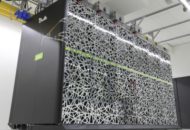Microsoft Windows and Microsoft Office, running on Intel based PCs totally dominates the desktop today. The same combination also dominates the home PC market, although Apple have a small but significant share in this sector.
In the corporate world, Apple computers are seldom used except in situations which demand an emphasis on graphics and publishing. Linux has made a significant dent in Microsoft’s domination of Intel based machines, but outside the academic sector, this is confined to the role of departmental server. Linux has had no impact on corporate desktop strategies and won’t for some time to come.
For Linux to make any impact on the desktop it must have an acceptable set of applications. Thus in the first instance it is a competitor to Microsoft Office that is needed. This must run on Windows first because of the installed base, before being pushed on Linux. Thus it is more likely that the slow but steady growth of Sun’s Star Office is the likely route to freedom from Office, rather than Linux itself. In a way this is unfortunate because Star Office is another "PC" style application suite, but the time is ripe for a completely new product set, based on thin-client architectures, which is more modular and far more related to users requirements. It would have to be designed from the bottom up, rather than from a Windows platform. I for one will be surprised if such a product doesn’t materialise in the future, probably with its roots in a University, and heavily funded by Venture Capital, but we won’t know until it happens, so Star Office is the great white hope of the moment.
here are a number of important business applications which have been designed to use functions of Microsoft Office as integral parts. These of course will not work with an alternative product suite, and so those users will have to continue with Office; it a waste of money to try and rebuild the applications and to retrain the users. But 90% or so of users do not need any of the fancy functions. Indeed to ordinary PC users such as myself, Word and co are dreadful products, totally unsuited to my relatively simple requirements. Moreover in conversation with most users, they have the same complaint. The intriguing thing is that most users are not in fact tied into Office, they only think that they are. Since Microsoft control the desktop by the simple expedient of regularly changing document formats, thus enforcing unnecessary upgrades to the newer versions, it is surprising that the normal users feel that they are incapable of using an alternative product. It is estimated that a current user of Office will only need a day’s training to switch to Star Office.
In the past the users have been swept of their feet by the "glamour" of the PC, and corporate system developers have prided themselves on belonging to the small set of people that can work their way through the mire of such dreadful software. The latter group are too tied in to escape easily, but the PC is no longer anything to get excited about for most users. And so we must return to the thorny question of cost of ownership. The cost figures produced by independent consultancies, averaging about $7,000 per user, per annum, are consistently swept under the carpet. Neither IT manager nor user is directly bothered and financial directors don’t seem able or willing to impose any control. But it might just be time for a change. There is a recession on at the moment and the thought of yet another round of expensive upgrades, with absolutely no return on investment for the majority of users, might create a revolt. And there is no argument that Star Office is cheaper than Microsoft Office. Further Star Office will not be endlessly modified since it is not a major revenue earner for Sun and so they have no need to force upgrades on satisfied users. Thus Star Office will have a much longer life than the competition. Further it then becomes a stepping stone to Linux and further decreases in cost of the basic PC, as well as a marked increase in reliability.
Corporate users should now look again at their desktop strategies. While so doing they should not totally ignore Apple. There is a rumour going around that the Apple Mac environment and applications are being ported to Linux and thus to PC hardware, a prospect worth looking for!
Martin Healey, pioneer development Intel-based computers en c/s-architecture. Director of a number of IT specialist companies and an Emeritus Professor of the University of Wales.





